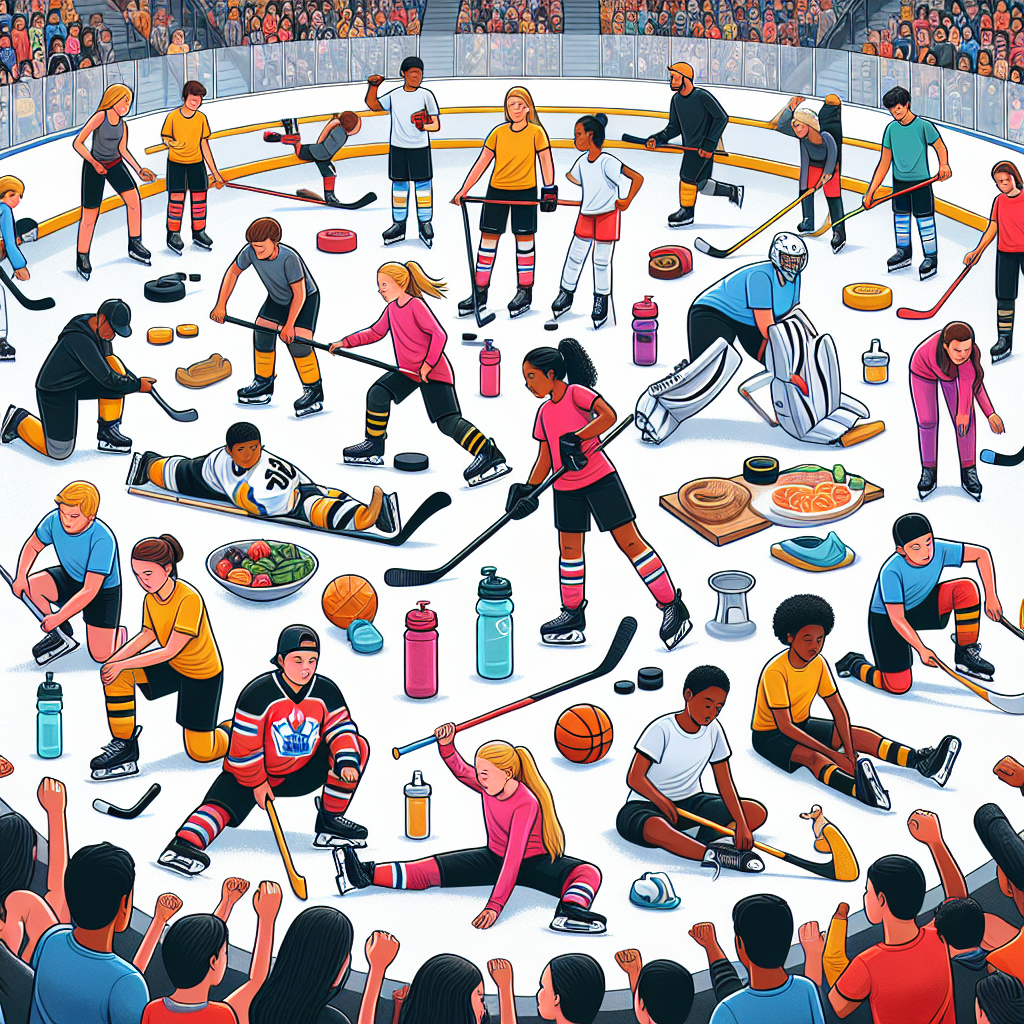Creating Healthy Post-Game and Post-Tournament Recovery Routines for Young Hockey Players
Hockey is one of the most physically demanding sports, requiring athletes to push their limits in fast-paced and often intense situations. For young hockey players, developing effective recovery routines after games and tournaments is essential for promoting overall health, avoiding injuries, and ensuring optimal performance in subsequent matches. Here, we’ll discuss proven hockey recovery strategies tailored specifically for young athletes.
Why Recovery is Crucial for Young Hockey Players
Post-game recovery is often overlooked, yet it plays a significant role in a young athlete’s overall development. Proper recovery routines can:
- Help reduce muscle soreness and fatigue.
- Improve future performance by ensuring muscles are well-rested.
- Minimize the risk of injuries, such as strains and sprains.
- Boost mental resilience by allowing players to reset after games.
Essential Components of Effective Recovery Routines
Implementing a solid recovery routine involves several key components. Here are some crucial hockey recovery strategies that young athletes should adopt after each game or tournament.
1. Hydration
Dehydration can significantly impair performance and recovery. Young hockey players should:
- Drink plenty of water before, during, and after the game.
- Consider electrolyte beverages if the game was particularly intense or long.
Encouraging athletes to carry a water bottle and sip on fluids throughout the day can help foster this habit.
2. Nutrition
A well-balanced post-game meal is integral to replenishing energy stores and facilitating muscle recovery. Here are some tips:
- Focus on consuming carbohydrates to restore glycogen levels. Foods like whole-grain bread, fruits, or pasta are excellent choices.
- Incorporate lean proteins to assist muscle repair. Options might include chicken, fish, eggs, or legumes.
- Include healthy fats, such as avocados or nuts, to support overall health and recovery.
3. Stretching and Cool Down
After a hard-fought game, it’s essential to cool down and stretch the muscles to promote flexibility and recovery. Some effective post-game stretching strategies include:
- Dynamic stretching during warm-up and static stretching post-game.
- Focusing on major muscle groups used in hockey, like quads, hamstrings, and glutes.
- Incorporating yoga or Pilates for a holistic approach to flexibility and stretching.
4. Active Recovery
Rest doesn’t always mean complete inactivity. Active recovery can result in a quicker recovery process. Consider the following activities:
- Light walking or jogging to increase blood flow without putting too much strain on muscles.
- Low-impact exercises like swimming or biking that engage muscles without intense effort.
- Participating in non-hockey-related activities can help distract from mental fatigue.
5. Sleep and Mental Recovery
Quality sleep is fundamental for recovery, especially for growing young athletes. Tips to optimize sleep include:
- Establishing a consistent sleep schedule, ideally keeping to the same times each night.
- Creating a restful sleeping environment by minimizing noise and light.
- Encouraging relaxation techniques before bed, such as reading or gentle stretching.
Implementing Recovery Routines into Team Culture
Encouraging healthy recovery habits doesn’t solely fall on the shoulders of individual players. Coaches and parents play vital roles in fostering a recovery-oriented environment. Here are ways to introduce hockey recovery strategies into the team culture:
- Incorporate recovery discussions into team meetings to emphasize its importance.
- Organize team dinners post-game, focusing on balanced meals that support recovery.
- Lead by example—coaches and parents should prioritize their well-being and recovery routines.
Conclusion
Recovery is an integral part of a young hockey player’s journey, from performance enhancement to injury prevention. By implementing these hockey recovery strategies, young athletes can improve their overall athletic experience, enabling them to enjoy hockey while maximizing their performance on the ice. Establishing healthy post-game and post-tournament recovery routines will nurture not only their athletic skills but also their love for the game.
Remember, fostering a culture of recovery isn’t just about physical rest; it’s about ensuring players are mentally refreshed and ready to take on the next challenge. Prioritize recovery, and watch your young hockey players thrive!



